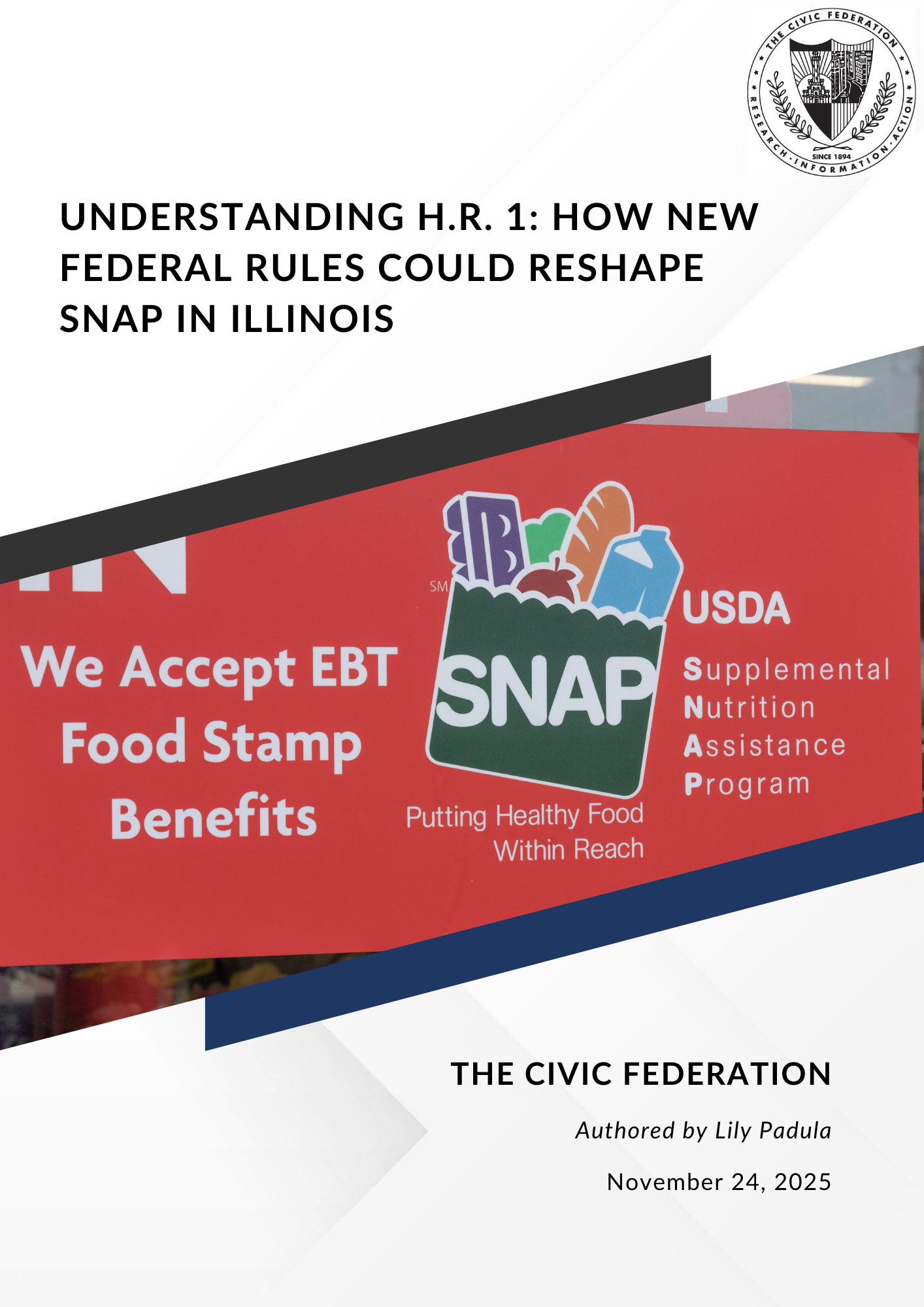November 21, 2025
By Lily Padula
Executive Summary
The recent federal government shutdown caused nationwide disruptions in public services and assistance across many domains, including food and nutrition supports for low-income individuals and households (see Federal Shutdown Threatens Food Assistance for Illinois Families). For the nation’s 41+ million participants in the Supplemental Nutrition Assistance Program (SNAP), the shutdown highlighted their vulnerability to unexpected decreases in monthly benefits. Indeed, SNAP participants nationwide—including nearly 1.9 million in Illinois alone—were relieved when the shutdown ended and SNAP benefits resumed, but the program remains headed for the most substantial revisions in decades due to the enactment of H.R. 1 in July 2025.
H.R. 1 expands work rules for able-bodied adults without dependents (ABAWDs), narrows waiver flexibility, and shifts substantial costs to the state through a lower federal administration match and a new benefit cost-share tied to payment accuracy. Under these changes, Illinois must absorb part of the cost of SNAP benefits if it exceeds federal performance thresholds, primarily related to payment accuracy, work-requirement enforcement, and verification practices. If the State does not pay the required cost-sharing amount, USDA is authorized to recoup the unpaid balance by reducing future federal reimbursements, including administrative funds, until the obligation is satisfied. Persistent non-payment can also trigger corrective action requirements and intensified federal oversight, increasing both administrative burden and fiscal exposure for the State. These changes are predicted to reduce caseloads and will increase state fiscal exposure unless Illinois improves program payment accuracy, targets waivers, and expands Employment & Training (E&T) capacity.
Illinois’ SNAP program faces three major challenges under H.R. 1:
1. A substantial reduction in SNAP participation. Expansion of work requirements to adults ages 18-64 and reduced waiver flexibility are expected to result in a 6-10% drop in total program caseloads, with 120,000-200,000 able-bodied adults without dependents (ABAWDs) likely to lose eligibility, removing $310-530 million in federal benefits annually. Those most affected will be older adults nearing retirement age, workers with unstable or part-time hours, residents of rural and/or disinvested communities, people of color, and households facing health or verification barriers.
2. Significant new state government fiscal exposure. Beginning in FY2027, Illinois must absorb more of the SNAP administrative costs as the federal match falls from 50% to 25%, adding roughly $80 million in annual state costs. In FY2028, Illinois will also be required to fund up to 15% of SNAP benefit costs if its payment error rate exceeds 6%. At the current error rate of 11.56%, this translates to $694-725 million per year in new state obligations.
3. Broad budget environment impacts. A 6-10% caseload decline would increase demand for food banks and nonprofits; reduce consumer spending in grocery and retail sectors and put pressure on small grocers, especially in food deserts; increase food insecurity and worsen health outcomes; and cause greater instability among workers with irregular hours.

